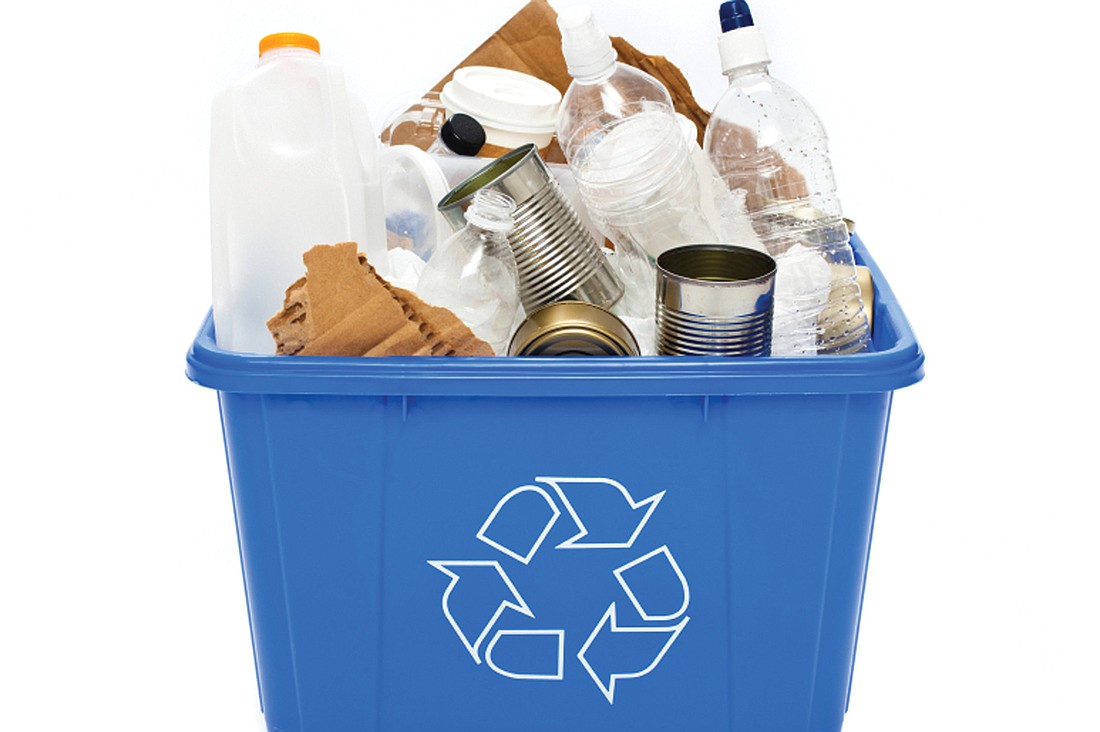- April 16, 2024
-
-
Loading

Loading

Every week in Sarasota a green army fans out to pick up “recyclables.” Most residents never question the appropriateness of such an undertaking and work diligently to support the war against waste.
The cult of saving trash — paper, plastic and glass — has become religion in our culture, the faithful assuming waste is bad so recycling has to be good. Unfortunately, environmentalists who blindly follow conventional wisdom in order to feel good about themselves do not think about the costs of their moral adventures. Let’s take a look at the county’s recycling program.
In 2010, Sarasota made slightly more than $1 million selling the recyclables you donated at the curb in those fancy red and blue bins. Unfortunately, it spent $8.65 million in tax dollars on recycling.
In a lame attempt to command the market, the recycling program, guided by 52 pages of regulations, increased collection rates, mandated residents to divide their trash or be fined, was more destructive of scarce resources and resulted in a loss of at least $7.5 million for the county. By any measure, that’s government waste at its finest. By these accounts, Sarasota’s public enemy No. 1 is not a murderer; it’s an empty milk jug.
There’s nothing wrong with recycling when it’s approached from a perspective of sound economics.
People recycle all sorts of stuff that takes a large degree of labor, time and resources to produce, such as cars, homes and pianos, without even thinking twice about it. Why? Because the free market, incentives and voluntary exchange guide scarce resources to their most valuable uses.
If it is profitable and efficient to recycle a resource, rest assured it was economized by the private sector long ago. Hypocritically, however, to the “green demigods,” only when an individual is forced to do so by government compulsion or political correctness is he said to be engaged in recycling.
If the county is bent on tithing to Mother Earth, it should focus on aluminum with direct payment drop-off centers for residents. Profit-driven mechanisms for the collection of aluminum cans emerged without government mandates long ago because recycling drink cans requires 10% less energy than transforming bauxite into aluminum.
Other compassionate reasons to recycle also don’t stand up to research.
• We are running out of landfill space. The U.S. has more landfill capacity then ever before. A landfill that would hold all of America’s garbage for the next 100 years would be only about 10 miles long on a side. Ironically, 40% of the recyclable waste is not of suitable quality so it ends up in the landfill anyway, while “good?” recyclables are often piled to the ceiling in warehouses with no market for sale.
• Trash is harmful to our health and environment. Today landfills pose absolutely no hazard to the environment, employ hundreds of workers and can produce electricity. The EPA says risks from modern landfills are virtually nonexistent and can be expected to cause only 5.7 cancer-related deaths over the next 300 years. Naturally occurring carcinogens found in fruits and vegetables are more dangerous to humans than modern landfills.
• We’re running out of trees and other raw materials. The total area of forestland in the U.S. is all but the same as it was 75 years ago, while tree density per acre has increased dramatically. Three million acres of trees are planted every year by private landowners, while the amount of new growth that occurs each year in forests exceeds by a factor of 20 the amount of wood and paper that is consumed by the world each year.
Since 1845, the average inflation-adjusted price of raw materials has fallen more than 50%. Remember, price is inversely related to supply. The “running out of” argument becomes nothing more than a mystical sermon, preaching that paper does not grow on trees and glass is made from diamonds.
• Recycling reduces pollution. It’s not clear whether secondary manufacturing (recycling) produces less pollution than primary manufacturing. Simply changing the nature of pollution through recycling does not make pollution any less polluting.
• Recycling saves energy. More energy and resources are spent than saved in the process of mandatory recycling. Curbside recycling can double the cost of waste disposal as an entire second fleet of vehicles and manpower using massive amounts of energy, water, capital and labor are used to collect, sort, clean and process the materials.
Mandated recycling efforts come at the cost of wasting more resources to actually recycle the product than would be used if recycling did not take place. As such, recycling programs misallocate scarce resources and inhibit economic growth, which lowers our wealth level and standard of living. This is counter to the gospel of “sustainability.”
The moral tragedy is that we see recycling and think “good,” but we fail to see are the people whose pain and suffering could have been lessened had the resources been allowed to serve more economically efficient purposes.
Recycling abundant resources allows the self-righteous to feel superior while they blindly promote the suffering of others they so piously claim to have compassion for. Maybe it’s time to recycle the way we think about recycling. Amen.
Dean Kalahar teaches economics and psychology at Sarasota High School, and has authored three books, including Practical Economics.